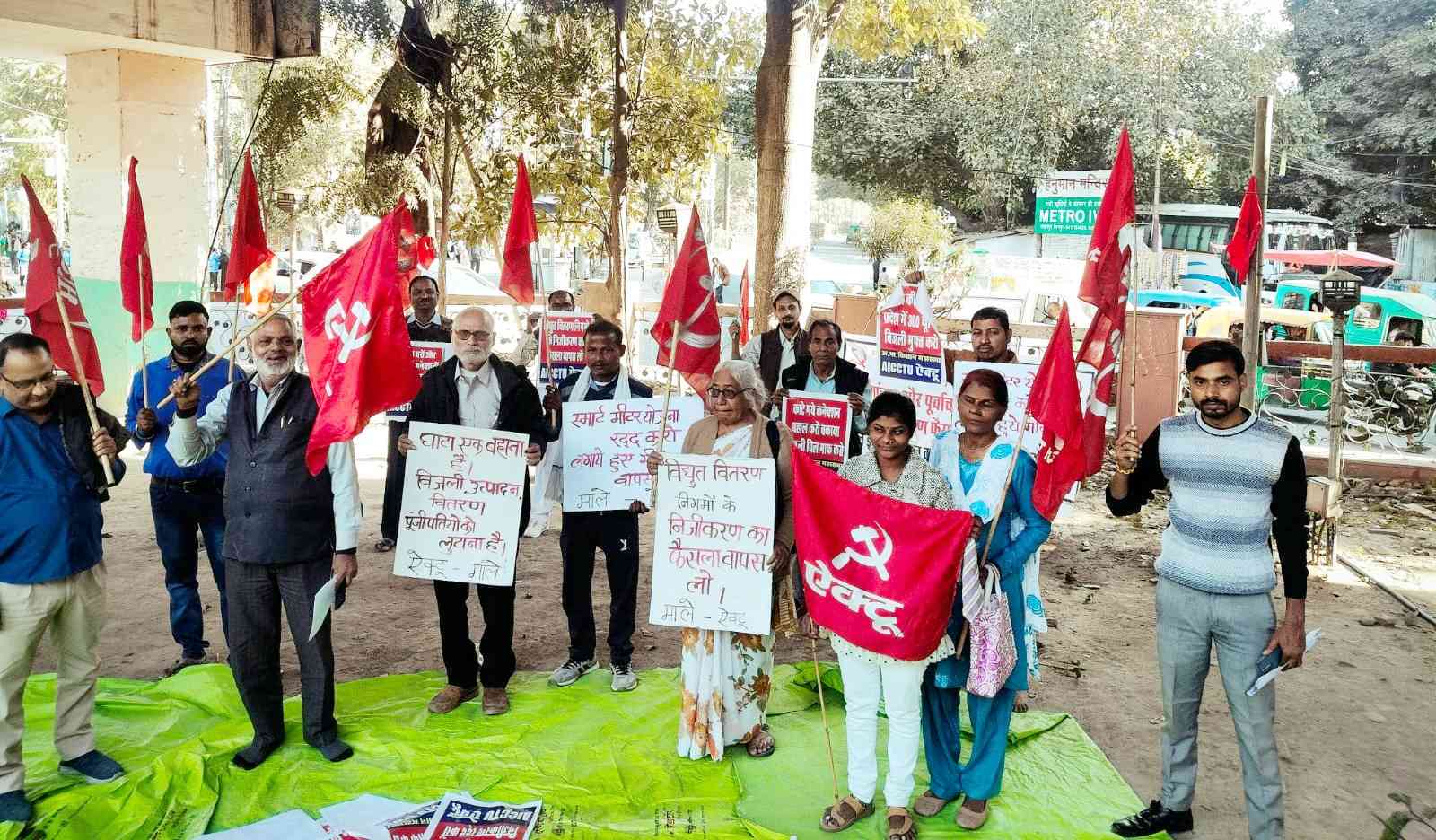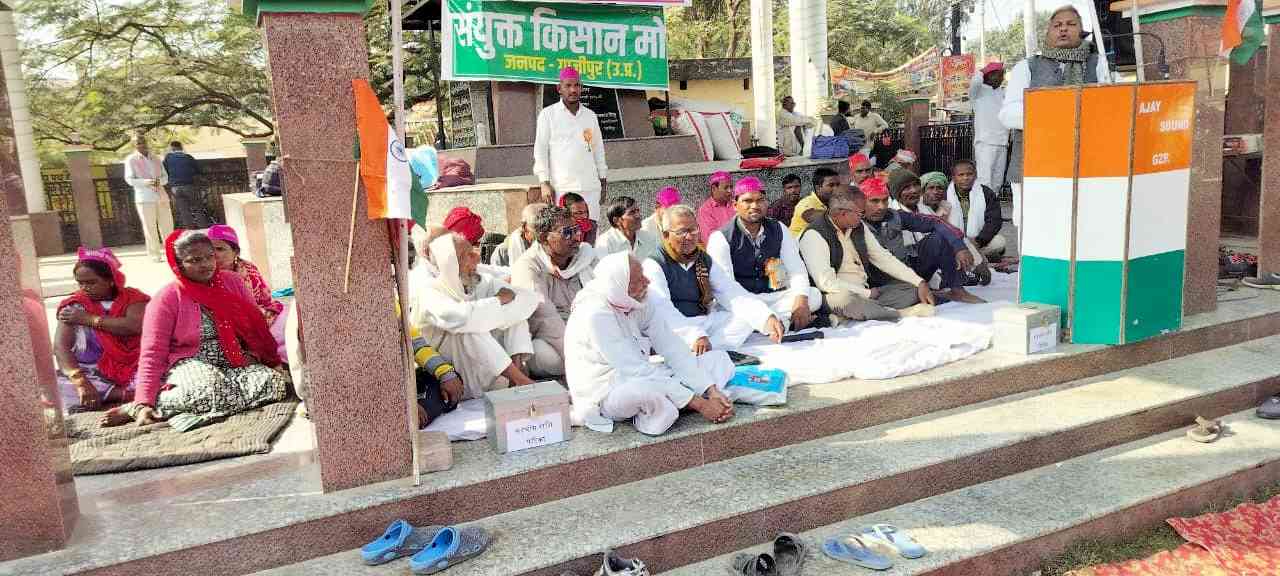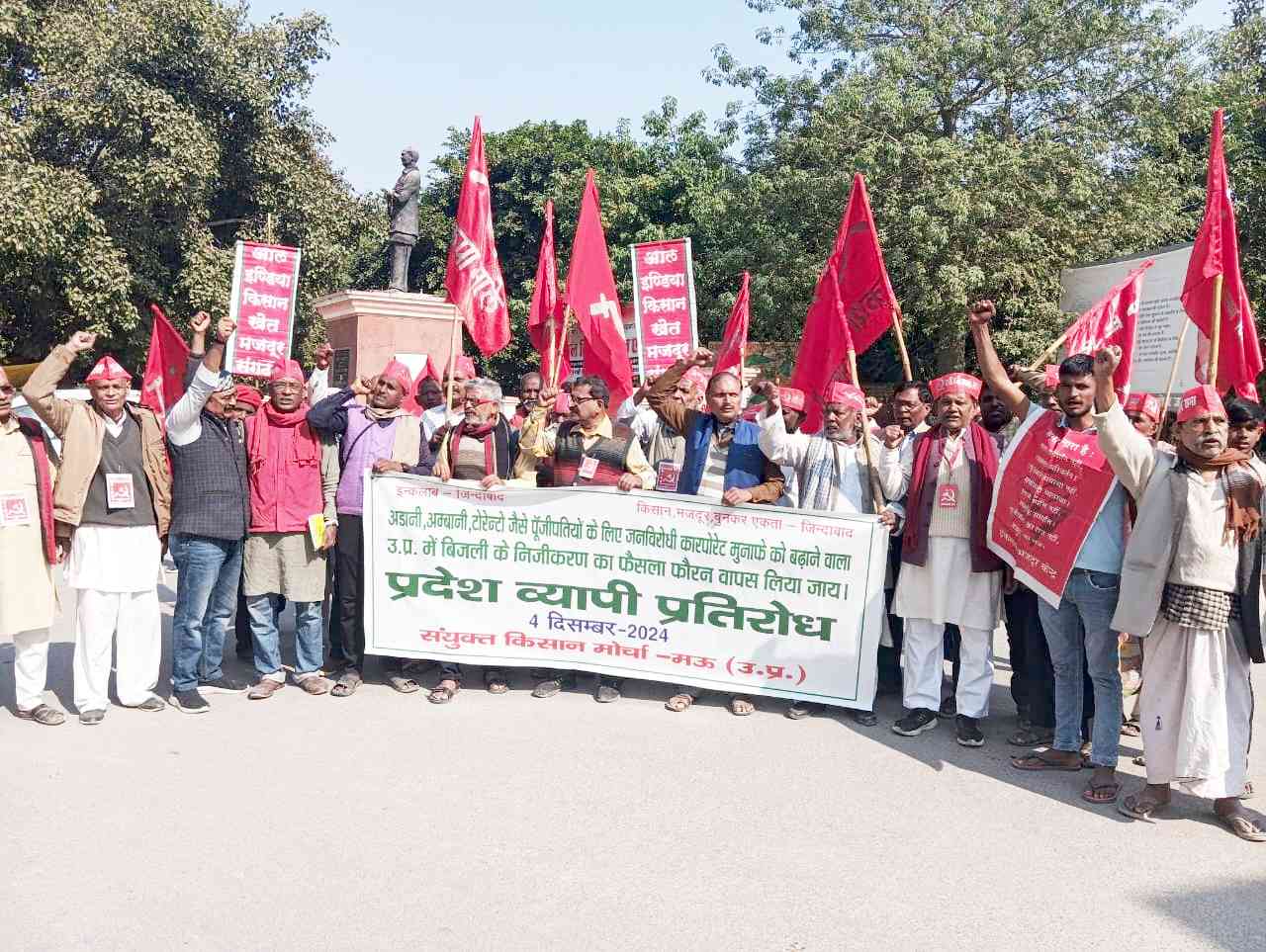State-wide Protests in UP Against Power Sector Privatisation

On Wednesday, December 4, 2024 widespread protests and demonstrations were organised across various districts of Uttar Pradesh by the Samyukt Kisan Morcha (SKM), AIKM and the All India Central Council of Trade Unions (AICCTU). The protests were held in opposition to the Yogi government’s decision to privatise two of the state's four electricity distribution corporations—Purvanchal (Varanasi) and Dakshinanchal (Agra).
Leaders addressing the protests termed the government’s privatisation move anti-people and aimed at benefiting corporate giants such as Adani, Ambani, and Torrent. They criticised the narrative of financial losses in Uttar Pradesh Power Corporation Limited (UPPCL) as misleading and deceptive. It was highlighted that a significant portion of UPPCL’s Rs. 1.15 lakh crore debt is owed by government departments, industries, and police, rather than individual consumers. Despite this, distribution corporations stand to gain Rs. 5,825 crore if outstanding dues are collected.
Speakers pointed out that Rs. 34,000 crore owed to consumers remains unreimbursed by power corporations. Additionally, Rs.55,000 crore was recently allocated for power sector modernisation, undermining the rationale for privatisation. The leaders accused the government of using the Public-Private Partnership (PPP) model to facilitate corporate control over public utilities under the guise of reforms.
The protest linked the issue to broader betrayals by the BJP governments at both the state and national levels. They noted that the Modi government reneged on its written agreement with the United Farmers’ Front during the Delhi farmers’ protests, which included a commitment not to proceed with the Electricity Amendment Bill without consultation. Meanwhile, the Yogi government has backtracked on its electoral promise to provide 300 units of free electricity and unconditional free power for irrigation, opting instead for mandatory installation of smart prepaid meters and advancing privatisation.
Protesters recalled Dr. B.R. Ambedkar’s declaration in Parliament that electricity is a social necessity and should be provided by the public sector without profit motives. They criticised the BJP for betraying Ambedkar’s vision. Leaders also pointed to the failure of past privatisation experiments, noting that the division of electricity boards by the BJP government in 2000 increased losses in Uttar Pradesh from Rs. 77,000 crore to Rs. 1.24 lakh crore over 24 years.
Leaders condemned the government’s six-month ban on electricity sector strikes, calling it undemocratic. They urged farmers, workers, power sector employees, and the general public to unite against privatisation and demand:
Cancellation of privatisation plans.
Regularisation of contractual workers in the power sector.
Waiving of inflated and disputed electricity bills.
Provision of 300 units of free electricity to all households.
In Ghazipur, a rally was held at Sarju Pandey Park, where a memorandum addressed to the Governor was submitted. Leaders including Ishwari Prasad Kushwaha (AIKM), Anubhav Das (AIKF), and others addressed the gathering. Similarly, in Ayodhya, workers from farmers’ and labour organisations held a spirited protest at Sadar Tehsil.
Protesters emphasised that privatisation would lead to higher electricity tariffs, further burdening consumers already grappling with inflation. They warned of reduced job opportunities and the erosion of reservation policies in employment under private ownership. Speakers such as Ashok Kumar Tiwari (Kisan Sabha) and Ateeq Ahmed (CPI-ML) vowed to escalate the struggle if the government failed to roll back its decision.
Protests were also organised in Kanpur, Allahabad, Varanasi, Lucknow, Mau, Chandauli, Moradabad, and Rae Bareli. AICCTU State President Vijay Vidrohi stated that demonstrations reflected growing anger against the privatisation agenda, which prioritises corporate profits over public welfare.


Charu Bhawan, U-90, Shakarpur, Delhi 110092
Phone: +91-11-42785864 | +91 9717274961 E-mail: info@cpiml.org

